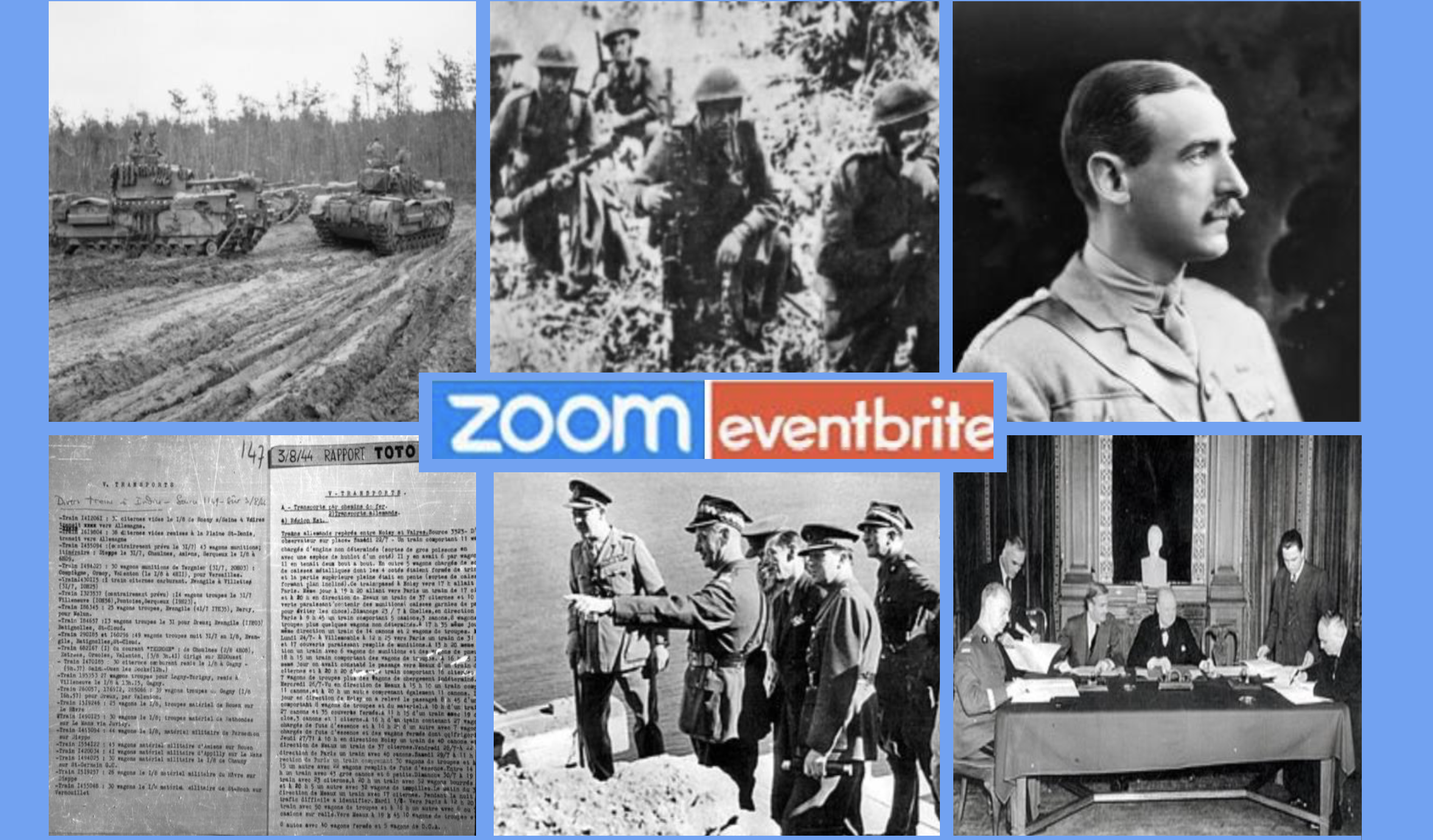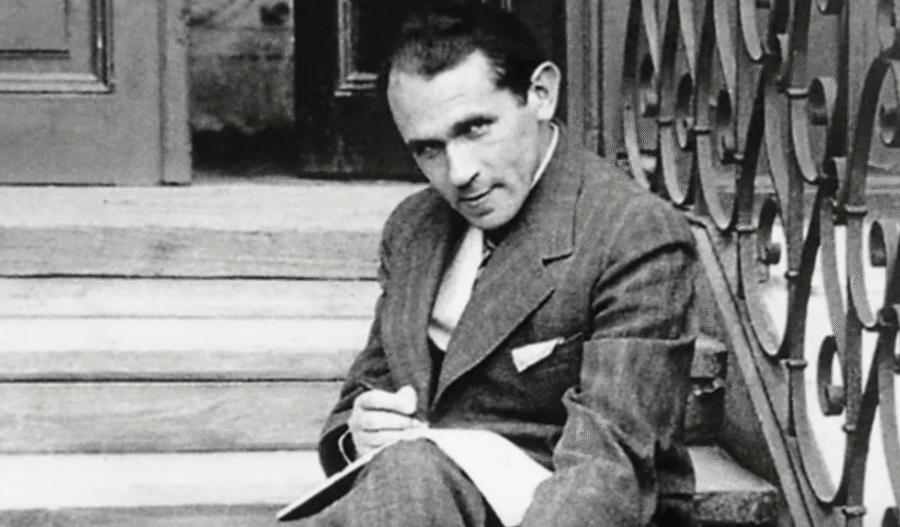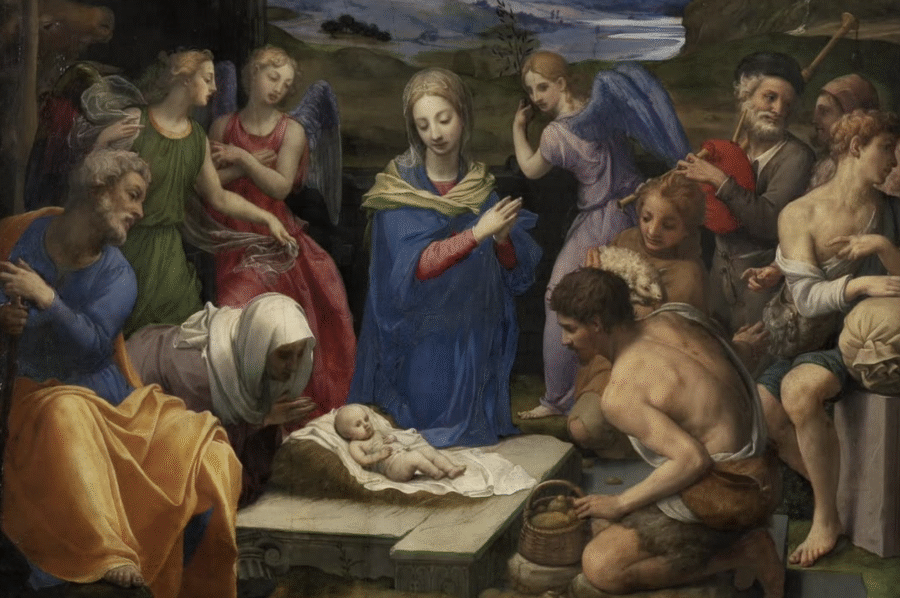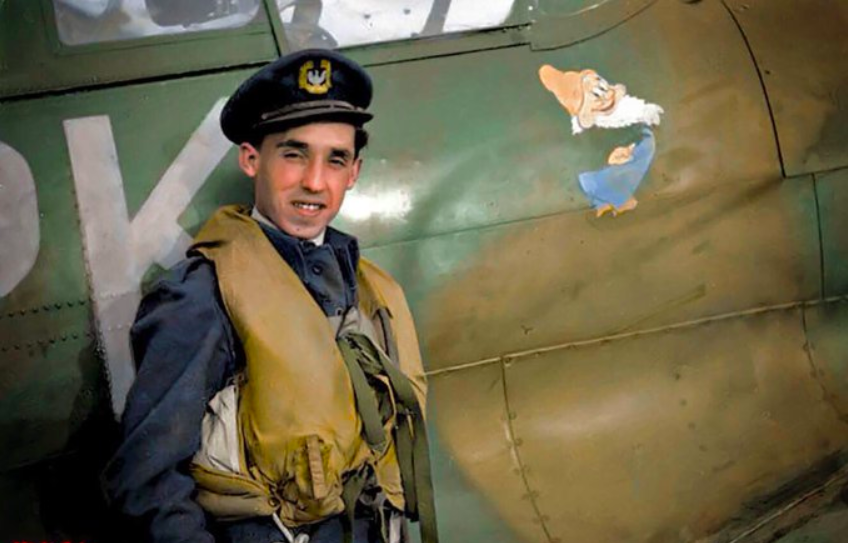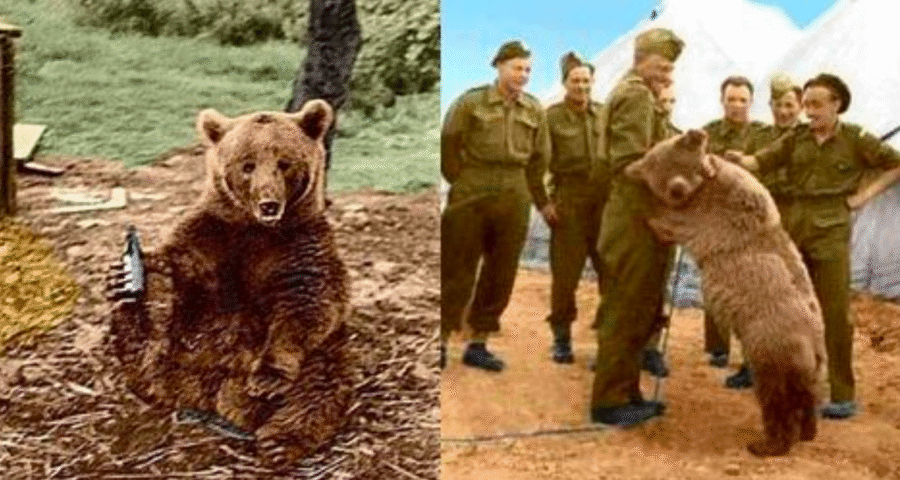Michael Moszynski chanced upon some documents found in his attic that revealed his father’s contribution to unknown aspects of Poland’s contributions to the allied war efforts. From helping the embarkation of 16,000 Poles after the Fall of France, to saving the lives of some Jewish Soldiers, to being sent on a secret mission to Ireland by Churchill, to persuading General Maczek to keep fighting after the news of the Yalta Agreement in 1945.
Son of a Cavalry Officer, Michael Moszynski worked for Saatchi Brothers for 20 years, then founded his own agency, London Advertising.
TICKETS: here
Saturday, 15 November 2025, 11.30 – Paul Latawski, Maj. General Stanislaw Maczek: An Assessment of Command and Leadership
Generał Maczek of 1st Polish Armoured Division, famous for its operations in Normandy and the Falaise Pocket, Hill 262, Mont Ormel 1944.
The Falaise Gap was the only escape route for the German Army who had been fighting in Normandy. At the time General Maczek’s Polish 1st Armoured Division, recently reorganised by the British in 1940 , was sent to fight with Canadian troops to try to capture the town of Falaise. The Falaise Gap was partially closed trapping well over 100,000 German soldiers. They were taken prisoners and sent to prisoner of war camps.
Paul Latawski a Senior Lecturer in the War Studies Department, Royal Military Academy, Sandhurst, has research interests in the Polish Armed Forces in the West during WW11, Polish resistance to occupation 1939-45 and urban operations. He is writing a history of 1st Polish Armoured Division’s operations in Normandy
TICKETS: here
Saturday, 29 November 2025, 11.30 – Anthony Massey, BRITISH MILITARY MISSION TO POLAND 1939
Learn about the British Officers who went to Poland to help the young Second Republic of Poland in 1939 with material assistance and advice.
The British officers who ran the Polish Section of SOE were among the best friends the Poles had during the Second World War. If ultimately they failed in helping Poland regain its freedom and independence in 1945, it was not for want of trying.
Anthony Massey is a retired journalist with BBC News. In a career lasting 33 years producing daily news on TV and radio, he spent much of his time covering wars and disasters round the world. This experience gave particular poignancy to his many conversations with his father, Lewis, who, along with Anthony’s grandparents, had escaped from Poland as a refugee in 1940.
TICKETS: here
Saturday, 10 January 2026, 11.30 – Stanislaw Bereza, A LITTLE POLAND IN WALES
A LITTLE POLAND IN WALES – The story of three former Polish Military hospitals in Penley and Iscoyd Park (1941-2004).
Stanislaw Bereza grew up in the Penley Hospital Community and is the son of Col.Dr.Michal Bereza. He studied at the London School of Economics and then worked as an economist and risk manager at Barclays Bank. In 1989 he participated in the UK government training for the post-communist government of Poland. This was followed by a secondment to the Polish Ministry of Finance to work as an adviser to the Finance Minister Leszek Balcerowicz and later as the inspector of Banks at the Central Bank of Poland. After working for the World Bank on development projects in Latvia, Estonia and other countries, he joined the Banking Supervision Dept of the Bank of England. He held senior appointments at the Bank and The Financial Srvices Authority and fro 2008 -2011 he was the Inspector of Banks at the Central Bank of the Bahamas.
In 1992 he wrote Zarzadzanie Ryzykiem Bankowym (Bank Risk Managment) – the first publlication of the newly formed Polish Institute of Bankers.
TICKETS: here
Saturday, 24 January 2026, 11.30 – Anthony Tucker-Jones, RHINELAND – HITLER’S LAST DEFENCE 1944-45
The story of the Rhineland Offensive from the German perspective. a race against time in the face of the inevitable Allied advance.
The Second World War started with the militarisation of the Rhinelands, an industrial heartland of Germany. Although Polish troops fought alongside the Allies in the Normandy and Scheldt campaigns, Poles were not involved in the Rhineland operations unless forcibly conscripted into the German Army. Many decided to escape to avoid conscription.
After a Career in the British intelligence community, Anthony Tucker-Jones established himself as a sought after defewnce writer, broadcaster, and military historian. For many year he was the terrorism and security correspondence for intersec – The Journal of International Security, where he developed a solid reputation for objectivity. He also worked as a defence commentator for Channel 4 News.
TICKETS: here
21st February 2026, 11.30 – Chris Wroblewski, SIKORSKI – An investigation into the crash that killed General Sikorski
Sikorski – An investigation into the crash that killed Sikorski on July 4, 1945 Gibraltar.
An investigation into the crash that killed General Sikorski on July 4th, 1943 in Gibraltar. Chris Wroblewski has been fascinated with aircraft and Second World War aviation history. A graduate of Centenial College’s aviation maintenance program in Ontario and over 36 years as a licensed Canadian Aircraft Maintenance Engineer. He was a director of maintenance for the Great War Flying Museum in Brampton Ontario and an instructor at Southern Alberta Institute of Technology. He has undergone many training classes and is an undergraduate at the University of Calgary studyding for a degree in military history.
His background has proved advantageous in researching the circumstances surrounding the crash of AL523.
TICKETS: here
7th March 2026, 11.30 – Franciszek Jordan Rozwadowski, Intelligence and Insurrection in Occupied France : The Reseau F2
Reseau F2: Main achievements and distinctive features of the Polish-led intelligence service in wartime France.
The Polish-run intelligence network known as „F2” had the fighting spirit of an insurrection and the discipline of a military operation. It was a matrix of collaboration between Frenchmen and Poles and between amateurs and intelligence professionals. Over time the relative number of Poles declined but a small Polish team, reporting to Polish Intelligence in London, was always in the driver’s seat. The lecture will explore how agents with different backgrounds (French and Polish, amateur and professional) made F2 one of the largest, most enduring and most effective of the allied intelligence networks in wartime France.
The lecture will be delivered by Franciszek Rozwadowski. An economist by profession, he has been working on F2 for a number of years. His interest began with a family connection-his father was „Pascal”, F2’s chief of intelligence during 1943-44. His research focuses on the network’s structure and working methods. He also studied the German counterintelligence effort in occupied France and the Wehrmacht Cipher Department’s (OKW/Chi’s) attack on F2’s encrypted radio traffic.
TICKETS: here
11th April 2026, 11.30 – Jarek Garlinski, The 1941 Sikorski-Maisky Pact
The Sikorki-Maiski Treaty between Russia and Poland signed on 30 July 1941 was to free thousands of Polish citizens from Russian prison.
The Sikorski-Maiski was an agreement to release thousands of Poles from Russian labour camps and prisons.. It also established the creation of the Polish Armed Forces in the USSR. Sadly, instead of freedom for Poland it brought annexation of part of Poland and the making of Poland into a Satellite of Russia, resulting in thousands of Poles never returning to their home country.
Our speaker Jarek Garlinski was born in London and brought up bi-lingual in English and Polish. Educated in England and France at the uiversities of Nottingham, London School of Slavonic and East European Studies, and Grenoble. He served as Head of three independent schools in the US and France. He is now retired from education. He translates Polish literature and history.
TICKETS: here
25th April 2026, 11.30 – Jenny Grant, Honouring the Polish Dead: The Imperial War Graves Commission and the Politics of Post War Commemoration.
Honouring the Polish Dead: The Imperial War Graves Commission and the Politics of Post-War Commemoration.
Jennifer Grant is a Postgraduate Researcher at Queen Mary University of London. Having studied Modern History at Oxford, she undertook an MA at the School of Slavonic and East European Studies. Her current research focuses on alliance-building and the challenges of honouring the Anglo-Polish Alliance both in wartime Britain and in the post-war world.
The granddaughter of Poles deported to Siberia, Jennifer is keen to build bridges between the Polish and British understanding of the war. As well as appearing at history festivals, she has recently edited the first English translation of the memoirs of General Maczek: 'The Price of Victory: The Memoir of the Commander of the 1st Polish Armoured Division’.
TICKETS: here


